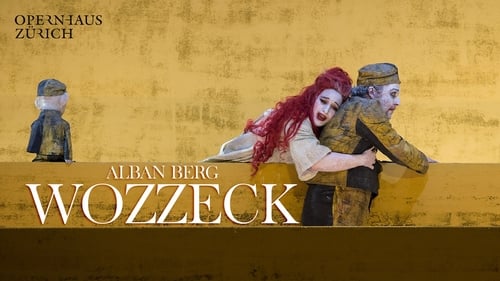
Eleonore, seine Schwester
Ernst Krenek's theatrical piece Karl V. consisting completely of twelve-tone series should have premiered at the Vienna State Opera. The political situation in the Vienna of 1933 and the fact that Krenek was despised by the Nazis because of this Jazz opera Jonny spielt auf, prevented the première. It only took place five years later in Prague, however Krenek had already emigrated to the USA. Karl V was the last emperor to hold to the idea of a Christian empire in which the sun never set, although its downfall was always inevitable, for numerous reasons. For the second production of Karl V. in the Nationaltheater, Carlus Padrissa in particular seeks out political power systems that are highly topical, and so very precisely analyses the treatment in the theatrical piece. At the core of the intellectually and linguistically highly qualified libretto, written by the composer himself, Karl V. reflects on his life and makes his confession to a young monk below Titian's La Gloria.

Marie
Separated and fragmented, the scenes combine in a series of tableaux to tell the story of Wozzeck, an ordinary soldier whose only solace is the love of his companion Marie. However, the latter’s fidelity is not unfailing and Wozzeck is haunted by torment. His officers and comrades in arms do little to improve the situation. The omnipresent tension in this profoundly romantic work unifies the fifteen scenes with their complex tonalities alternating between Verist notes and the force of ritualised actions. Christoph Marthaler’s production provides an atmosphere of contemporaneity strongly accentuated by the choice of a single set, where the men’s despair is submerged in Berg’s dearly sought-after sobriety.

Marie
The soldier Wozzeck (Christian Gerhaher) flits through a world that he is unable to decipher. The doctor torments him with absurd medical experiments; the captain humiliates and ridicules him. And Wozzeck’s lover, Marie (Gun-Brit Barkmin), with whom he has a child, cuckolds him with the drum major. Wozzeck becomes a murderer, stabbing Marie to death. Georg Büchner’s drama fragment, on which Alban Berg based his first opera, is an unflinching case study of social injustice and human suffering. But it is also a grotesque piece that thrives on exaggeration – and in which only a fine line separates the unfathomable from the ridiculous. Accordingly, director Andreas Homoki forgoes all realism.


